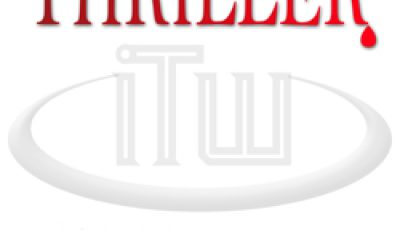

July 30 – August 5: “Research, do you love it or hate it?”
This week ITW Members Dan Mayland, R. Thomas Riley, Andrew Kaplan, Cathy Scott, F.J. Lennon and C.E. Lawrence discuss their love (or not) of research. You won’t want to miss this!
~~~~~
 Cathy Scott‘s work has appeared in The New York Times Magazine, New York Post, George magazine, Christian Science Monitor, Las Vegas Sun and Reuters. She blogs for Forbes and Publishers Marketplace and is known for her books THE KILLING OF TUPAC SHAKUR and THE MURDER OF BIGGIE SMALLS. She taught journalism at the University of Nevada, Las Vegas until she left her position following Hurricane Katrina to report on the largest animal rescue in U.S. history. Her most recent TV appearances include Investigation Discovery, VH1 and A&E.
Cathy Scott‘s work has appeared in The New York Times Magazine, New York Post, George magazine, Christian Science Monitor, Las Vegas Sun and Reuters. She blogs for Forbes and Publishers Marketplace and is known for her books THE KILLING OF TUPAC SHAKUR and THE MURDER OF BIGGIE SMALLS. She taught journalism at the University of Nevada, Las Vegas until she left her position following Hurricane Katrina to report on the largest animal rescue in U.S. history. Her most recent TV appearances include Investigation Discovery, VH1 and A&E.
 Dan Mayland has been detained by soldiers in Soviet Czechoslovakia, trekked to remote monasteries in Bhutan and Nepal, explored mosques in Iran and Azerbaijan and Turkmenistan, and gone high-altitude mountaineering in Peru and Bolivia. His articles have appeared in the Iranian.com and his debut spy thriller, THE COLONEL’S MISTAKE, will be released by Thomas & Mercer this August.
Dan Mayland has been detained by soldiers in Soviet Czechoslovakia, trekked to remote monasteries in Bhutan and Nepal, explored mosques in Iran and Azerbaijan and Turkmenistan, and gone high-altitude mountaineering in Peru and Bolivia. His articles have appeared in the Iranian.com and his debut spy thriller, THE COLONEL’S MISTAKE, will be released by Thomas & Mercer this August.
 R. Thomas Riley is the author of the short story collection THE MONSTER WITHIN IDEA (2009-2011) published by Hugo Nominated Apex Publications and re-released as a Kindle exclusive in 2011. IF GOD DOESN’T SHOW (co-written with John Grover) will be published by Permuted Press and Audible.com, July 2012. DIAPHANOUS (co-written with Roy C. Booth) is available now. THE DAY LUFBERRY WON IT ALL was adapted to short film by Frosty Moon Omnimedia in 2010.
R. Thomas Riley is the author of the short story collection THE MONSTER WITHIN IDEA (2009-2011) published by Hugo Nominated Apex Publications and re-released as a Kindle exclusive in 2011. IF GOD DOESN’T SHOW (co-written with John Grover) will be published by Permuted Press and Audible.com, July 2012. DIAPHANOUS (co-written with Roy C. Booth) is available now. THE DAY LUFBERRY WON IT ALL was adapted to short film by Frosty Moon Omnimedia in 2010.
 Andrew Kaplan is the bestselling author of the Scorpion novels. A former journalist and war correspondent, he served in both the U.S. Army and the Israeli Army. His novel, DRAGONFIRE, was a Book of the Month Club main selection and his film writing career includes the James Bond classic, GOLDENEYE. Suspense Magazine declared: “[Kaplan] matches the best of Ludlum, and then surpasses it.” Kirkus called his work “ELECTRIFYING … a searing, ultimately satisfying entertainment” and David Morrell stated: “Andrew Kaplan represents a gold standard for thriller writing.”
Andrew Kaplan is the bestselling author of the Scorpion novels. A former journalist and war correspondent, he served in both the U.S. Army and the Israeli Army. His novel, DRAGONFIRE, was a Book of the Month Club main selection and his film writing career includes the James Bond classic, GOLDENEYE. Suspense Magazine declared: “[Kaplan] matches the best of Ludlum, and then surpasses it.” Kirkus called his work “ELECTRIFYING … a searing, ultimately satisfying entertainment” and David Morrell stated: “Andrew Kaplan represents a gold standard for thriller writing.”
 C.E. Lawrence is the byline of a New York-based suspense writer, performer, composer and prize-winning playwright and poet whose previous books have been praised as “lively. . .” (Publishers Weekly); “constantly absorbing. . .” (starred Kirkus Review); and “superbly crafted prose” (Boston Herald). SILENT SCREAMS, SILENT VICTIM and SILENT KILLS are the first three books in her Lee Campbell thriller series. Her other work is published under the name of Carole Bugge. Titan Press recently reissued her first Sherlock Holmes novel, THE STAR OF INDIA.
C.E. Lawrence is the byline of a New York-based suspense writer, performer, composer and prize-winning playwright and poet whose previous books have been praised as “lively. . .” (Publishers Weekly); “constantly absorbing. . .” (starred Kirkus Review); and “superbly crafted prose” (Boston Herald). SILENT SCREAMS, SILENT VICTIM and SILENT KILLS are the first three books in her Lee Campbell thriller series. Her other work is published under the name of Carole Bugge. Titan Press recently reissued her first Sherlock Holmes novel, THE STAR OF INDIA.
 F.J. Lennon is a novelist, screenwriter, and video game producer. His love of all things paranormal spawned two novels: DEVIL’S GATE and SOUL TRAPPER, which follow the turbulent life of rogue ghost hunter, Kane Pryce. He also authored EVERY MISTAKE IN THE BOOK, a light-hearted business memoir about his years in the video game industry. He lives in Los Angeles, California with his wife and two daughters.
F.J. Lennon is a novelist, screenwriter, and video game producer. His love of all things paranormal spawned two novels: DEVIL’S GATE and SOUL TRAPPER, which follow the turbulent life of rogue ghost hunter, Kane Pryce. He also authored EVERY MISTAKE IN THE BOOK, a light-hearted business memoir about his years in the video game industry. He lives in Los Angeles, California with his wife and two daughters.
- LAST GIRL MISSING with K.L. Murphy - July 25, 2024
- CHILD OF DUST with Yigal Zur - July 25, 2024
- THE RAVENWOOD CONSPIRACY with Michael Siverling - July 19, 2024

